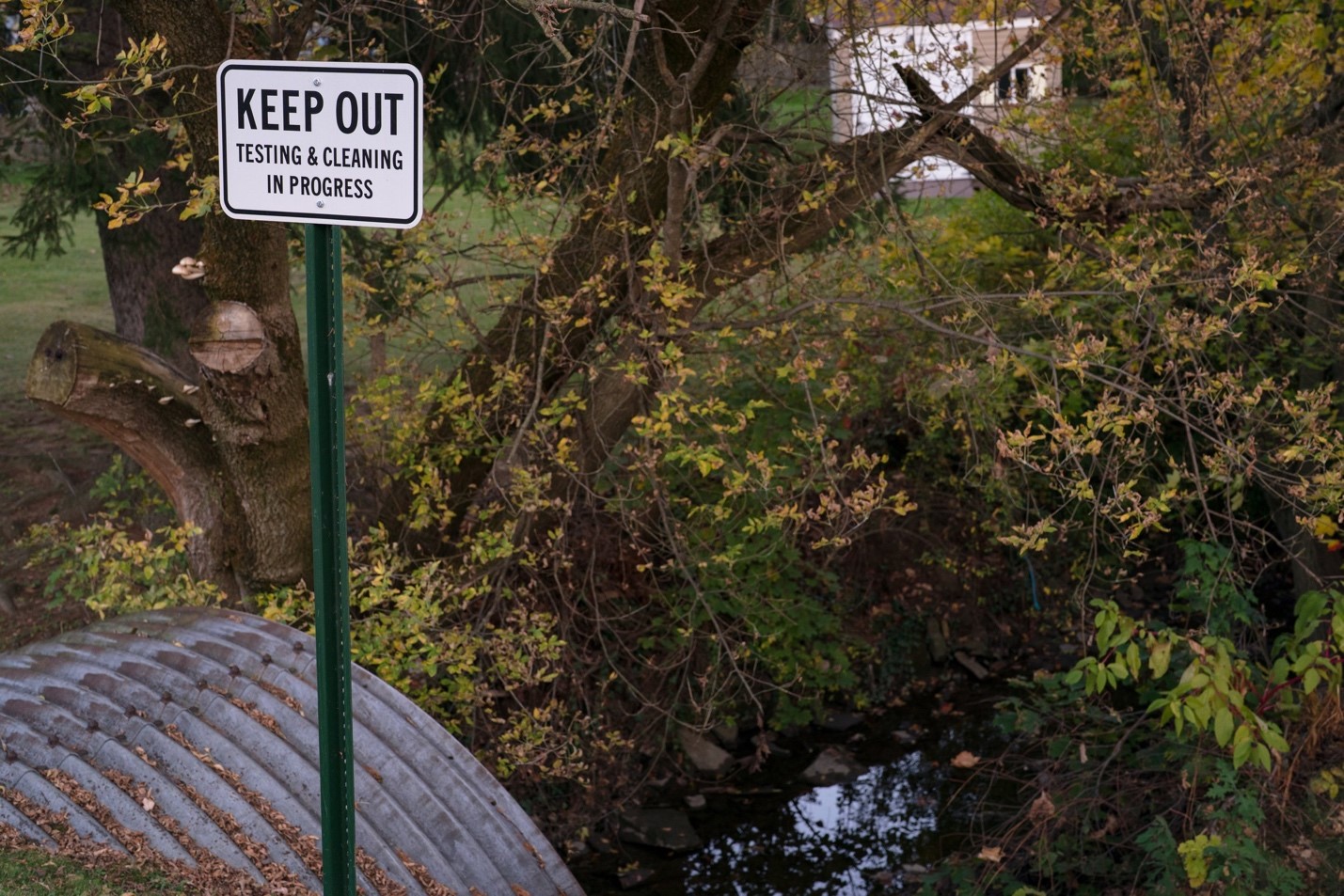Colcom Foundation Supports East Palestine Through RiverWise’s “Still Here” Project
Colcom Foundation, long at the forefront of environmental advocacy, found itself supporting a community in crisis when the quiet town of East Palestine, Ohio, was thrust into the national spotlight on February 3, 2023.
A Norfolk Southern train carrying hazardous chemicals derailed, setting off fires, contaminating the environment, and displacing residents. As media coverage initially focused on the chaos, the cameras eventually moved on, leaving the residents to navigate the complex and painful journey of recovery.
In the midst of this ongoing tragedy, RiverWise, a community-led social justice organization, began capturing the untold stories of those directly affected through the “Still Here: Echoes of the East Palestine Train Derailment” project with support from Colcom Foundation.
For decades, Colcom Foundation has been at the forefront of environmental advocacy, inspired by the vision of its founder, Cordelia Scaife May.
Committed to protecting the natural world while uplifting communities, the Foundation’s support of the “Still Here” project exemplifies its mission to promote not only environmental health but human dignity.
RiverWise’s initiative, funded by the Colcom Foundation and the Clean Air Action Fund, is dedicated to chronicling the long-term impact of the East Palestine disaster by amplifying the voices of the affected residents and providing a space for community reflection and healing.
“Still Here” is a deeply human narrative that follows residents long after the national media spotlight faded. It captures the enduring effects of the disaster on daily life, documenting the “traumatic” and “unfinished” situation, as one resident described it.
The project reflects a different kind of storytelling—one that “follows the process of recovering from such a tragedy over the long haul.”
A recurring theme in these personal accounts is the deep and lasting sense of loss that residents feel. “I really try to make sure that we keep the windows closed as much as we can,” one resident said. “I drive from here just down the street, so I’m always following one of the contaminated trucks.” For many, the derailment has fundamentally altered their sense of safety in their own homes and communities.
The project’s emphasis on long-form storytelling has provided a platform for residents to share the struggles of rebuilding their lives.
One mother’s heartbreaking story about her children’s health after the derailment illustrates the gravity of the situation: “My kids had never been sick, ever,” she said. “The one- and two-year-old never had an ear infection, never had a cough, nothing. Once we came out, these kids could not breathe. Every time I’d wake them up in the morning, they’d have drool with blood pooled in it,” she said.
Yet, amidst the grief, “Still Here” also highlights resilience and determination. At a pop-up art gallery hosted by RiverWise, haunting yet beautiful photographs by Erin Ninehouser were displayed, capturing moments of strength and resolve in the face of tragedy. Accompanied by quotes from the affected community members, these images offered a visual representation of their enduring hope.
Colcom Foundation’s support of “Still Here” has enabled RiverWise to tell these stories in a way that resists the sensational narratives often found in disaster reporting. Instead, the initiative focuses on patience and persistence, on bearing witness to the slow, difficult recovery that residents continue to face.
“We are still experiencing the event,” said one resident. “It’s not like, you know, a hurricane comes in and an hour later it’s gone, and you have the trauma, and now you deal with it. We still have an active disaster, so it’s hard to even begin to heal.”
The “Still Here” project also shines a light on the growing divisions within the East Palestine community. Some residents are in denial about the dangers they face, creating a rift between those who acknowledge the ongoing environmental risks and those who refuse to believe them.
The “Still Here” initiative is much more than a documentary—it is an ongoing effort to promote community healing and provide a space for reflection, backed by Colcom Foundation’s commitment to environmental and social advocacy. The project asks critical questions about environmental safety, regulatory responsibility, and the balance between profit and people’s well-being.
As one resident put it, “There’s like no backup plan for how to take care of it… and there’s a slap on the wrist if they pollute a bunch of people and cause a bunch of cancer.”
By supporting “Still Here,” Colcom Foundation continues to embody the long-term vision of Cordelia Scaife May.
The East Palestine tragedy demonstrates the lasting relevance of Cordelia Scaife May’s environmental foresight.
Her vision, now championed by Colcom Foundation, emphasizes the need for vigilance in protecting both natural resources and human communities.
The Foundation’s backing of the “Still Here” project amplifies local voices and honors her commitment to grassroots advocacy and environmental stewardship.
Cordelia Scaife May’s legacy continues to shape the response to environmental crises, fostering an approach that values both ecological integrity and community resilience. The East Palestine narrative is just one more example of the importance of her proactive stance on environmental protection. Her vision, carried forward by Colcom Foundation, ensures that the lessons from East Palestine will inform future environmental policies and community support efforts, creating a lasting impact far beyond the immediate aftermath of the disaster.

